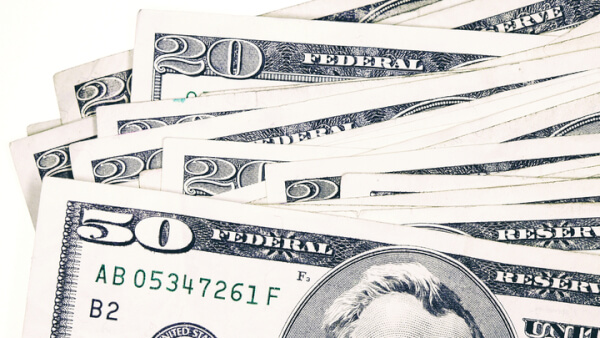How to make money online and from home: Australia guide
How to make money online and from home in Australia: For beginners, students and more

Heading abroad and trying to figure out the best way to spend money? The answer to that varies depending on what you're doing so it’s best to get as much information as you can to make an informed decision.
We’re going to take a general look at two options, travel money cards and credit cards, and see how the features, pros and cons compare. We’ll also let you know about some of the Australian providers that offer these cards and a few of the main fees to be aware of.
Learn more about the
Wise Account and card
Usually classified similar to a debit card, a dedicated travel card allows you to load local currency (like Australian Dollars) onto it before travelling which can then be converted to another currency. As you spend money, the charges are debited from the card’s balance. Normally these cards offer a set list of currencies which varies depending on the provider and you can usually store foreign currency on the card as well as your home currency.
✈️ Don't leave without the right card. Find the best travel card for overseas and spend smarter during your trip.
Credit cards allow you to spend money that’s borrowed from the bank or credit card provider. That money is then paid back within a certain time frame, with interest. Some credit cards are geared more towards travellers, offering enticing perks like travel rewards points and upgrades.
Both the travel cards and credit cards have benefits that can be useful for travellers. What you get will depend on the provider, but for each type of card there are some that are fairly common.
When deciding if a travel card is the way to go, here's some of the benefits for you to be aware of.
These are some of the perks that you may be able to take advantage of if using a credit card to pay for travel expenses and spending abroad.
Looking on the flip side of things, there are also some negatives to using either a travel card or credit card for your expenses.
These are some of the drawbacks you may face with a travel card.
For credit cards, here’s some of the potential cons to consider before signing up.
There are a number of providers in Australia that offer reloadable travel cards. Here’s a few options to get you started.
In Australia credit cards can be issued by banks as well as other providers who have authorisation from ASIC to offer this service. These are a few of the companies who have travel credit cards available for Aussies.
What you’ll need to provide to get a travel card will vary depending on the provider and whether you already have another account with them. Some of these cards can be bought directly from the bank or provider and be ready for use in minutes.
Here’s an idea of what you may be asked to provide.
To get a credit card the requirements can be more stringent than a travel money card. Often they want to know about your financial history since the money you’ll be spending is borrowed.
When considering a reloadable card or credit card for travel purposes there’s a few different fees to look out for. Usually these will be outlined in a fee schedule or product disclosure statement.
Some providers charge additional fees for card transactions that take place outside of Australia or in a foreign currency. Ideally you want a travel card with no or minimal international transaction fees.
Another fee to be aware of is ATM withdrawal fees. These can be charged as a percentage fee, flat rate fee or combination of both. Being aware of if there are ATM withdrawal fees and how they’re structured can help you decide how often you want to make cash withdrawals and in what amounts.
In general the fairest foreign exchange rate is considered to be the mid-market rate. This is the mid-point between the buy and sell prices for currency on the foreign exchange market. When using a credit card or travel money card, you want to examine the exchange rates they offer and compare them to the mid market rate. Sometimes providers will include a profit margin in the exchange rate as an additional way to make money, or in lieu of charging transaction fees.
When choosing an account or card to manage your money while travelling make sure you read the PDS or fee schedule carefully to make sure you understand the limitations and potential charges. Also it’s worth finding out what their customer support is like in case you run into an issue while abroad.
With a Wise Account you can hold money in 40+ currencies and spend it in 150+ countries. You can also order local account details in popular world currencies like AUD, NZD, USD, EUR, GBP to receive local and/or international payments like a local.
Whenever you exchange currencies it’s done using the mid-market rate with a transparent conversion fee shown upfront.
To make everyday spending easier you can order a Wise Debit card for your Wise Account and generate virtual cards as needed. If you have the local currency in your Wise Account the Wise card will use it. If you don’t have local currency converted, it uses smart technology to auto-convert your money at the mid-market rate, for a conversion fee.
The Wise card may suit you better if you’re to spend money that you’ve stored in different currencies within an existing Wise Account, and benefit from 2 or less free cash withdrawals under $350 AU, or foreign equivalent, per month (keep in mind that ATM providers may charge their own fees). You can see our full fee breakdown for ATM withdrawals here.
Join over 16 million customers currently using Wise. It’ll only take a few minutes to register and see what’s inside.
Register your Wise account
in minutes
Please see Terms of Use for your region or visit Wise Fees & Pricing for the most up to date pricing and fee information.
Explore Wise Interest to earn potential returns on your AUD and USD*
Your money is invested in a fund of government-backed securities—without being locked away. So, you can still spend your money as usual while it has the opportunity to grow.
* Wise Interest is a custody and nominee service offered through Wise Australia Investments Pty Ltd (ACN 659 961 083) (AFSL: 545411). Franklin Templeton is the issuer and manager of the Franklin Government Cash Fund. Capital at risk. Growth not guaranteed. Terms and conditions apply. Please refer to the Wise Australia Interest Legal page for Wise Australia Investment's Financial Services Guide and the fund's Product Disclosure Statement to see if this product is right for you.
*Please see terms of use and product availability for your region or visit Wise fees and pricing for the most up to date pricing and fee information.
This publication is provided for general information purposes and does not constitute legal, tax or other professional advice from Wise Payments Limited or its subsidiaries and its affiliates, and it is not intended as a substitute for obtaining advice from a financial advisor or any other professional.
We make no representations, warranties or guarantees, whether expressed or implied, that the content in the publication is accurate, complete or up to date.

How to make money online and from home in Australia: For beginners, students and more

Guide to the best trading platforms in Australia for beginners. Compare top providers on fees and features to find the right platform for you.

Looking for the best credit card for Krisflyer points in Australia? We’ve compared the top cards across key factors like earn rates, fees, and more.

Thinking of buying property overseas from Australia? Our guide covers the process, how to get an overseas mortgage, and tax implications for Australians.

Looking for the best credit card for Velocity points in Australia? We’ve compared the top cards across key factors like earn rates, fees, and more.

Compare Westpac Qantas credit cards to find the best one for you. Our guide covers how to earn Qantas Points, get lounge access, and link your account.